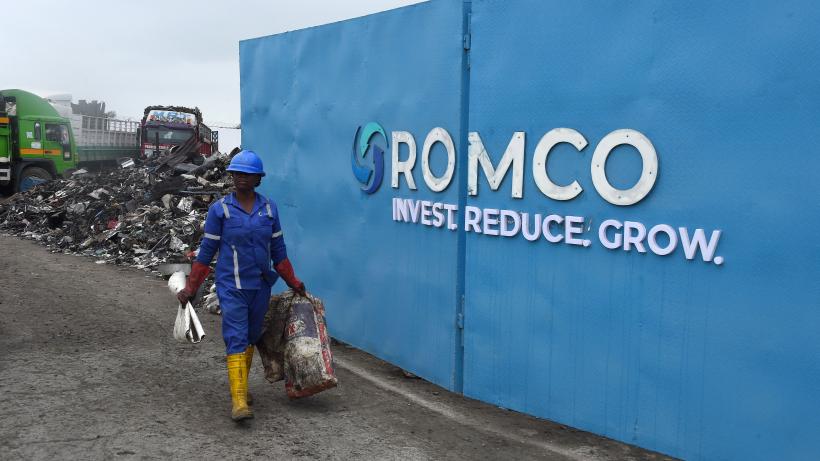
Industrialising Africa: Anchoring climate adaptation and the AfCFTA
Industrialisation in African countries must balance development needs with two emerging priorities – climate adaptation and regional trade. Industrialisation strategies can uniquely coalesce these priorities, as has been done in countries like Morocco and Ethiopia. African countries can shape their industrialisation strategies to anchor broader climate and trade goals.
In recent years, two major topics have increasingly featured in economic debates concerning Africa: regional trade—particularly in the context of the African Continental Free Trade Agreement (AfCFTA)—and climate change—as evidenced by this month’s first ‘African’ COP.
The former is about the long overdue economic ‘coming together’ of the continent’s currently fragmented markets. This will enable firms to trade increasingly value-added goods and services more freely across the continent and thus, drive industrialisation. The latter is about African countries preparing themselves to manage the accelerating impacts of climate change by building resilience and coping mechanisms, while pursuing new, ‘greener’ economic opportunities that it creates.
Both agendas are fundamentally about economic transformation on the continent and can contribute to the increased wellbeing of African citizens. Furthermore, they have major implications for each other, be it in the type of energy consumed, the types of transport used, the way cities are built, the way agriculture is developed, and the way goods and services are produced and traded. Yet much of the policy thinking in these areas has been done separately. This limits African countries’ ability to identify and capitalise on win-win opportunities between climate and trade.
Tying regional trade and climate change into industrialisation strategies
In order to bridge this gap, both agendas should be tied into countries’ industrialisation strategies. Industrialisation should focus on the developmental needs of the continent. Given the nature of opportunities at hand, industrialisation needs to balance development with being trade-oriented and as green as possible. This depends on the costs and appropriateness of technologies available.
One opportunity is in transportation. Increased trade and productivity require international roads— an estimated 80% of traded goods are by road—and alternate, cleaner modes like railway. They also require modern urban transport solutions that can mitigate the negative productivity effects of congestion and pollution in rapidly expanding cities. African countries could develop cleaner bus rapid transit systems, adopt climate-smart road technologies, and plug into automotive manufacturing value chains as they evolve with greener technologies.
Another opportunity lies in scaling the production and trade of goods manufactured from natural resources available in abundance on the continent, as well as the recycling of their by-products and waste. For example, scaling copper manufacturing will be key for supporting urbanisation and meeting growing housing needs, since copper wiring is one of the most carbon-friendly materials to transport fluids within buildings (such as, air-conditioning). Similarly, polymers extracted from food crops like soybean can be used as a replacement for petroleum-based polymers in asphalt production.
A third opportunity is in energy, where the goals of the AfCFTA will require providing electricity to the over 600 million Africans still living without it, and bringing reliable and affordable energy to the growing number of industrial parks, agro-processing sites, offices, and tourist sites in African cities. Pursuing climate-smart opportunities may increase African countries’ ability to meet this goal. This includes producing renewable natural gas from crops like palm oil and corn—as is being done in the US—through to using natural gas for multiple purposes—for fertiliser production, for example, in addition to its role as a transition fuel from charcoal and kerosene.
Avenues for tapping into ‘greener’ industrialisation opportunities
Many such opportunities are largely untapped. As the continent develops, much more needs to be done to unify the trade and climate agendas, and African countries’ industrialisation strategies can play this anchoring role. Where trade and climate agendas may easily get trapped in siloes, industrialisation strategies can:
- coalesce various parts of government policy around a holistic vision
- make salient climate-smart solutions from the private sector and steer investment toward them
- encourage the trade and diffusion of climate-friendly technologies across countries and sectors
- resolve trade barriers that keep markets inefficient, both from an economic and environmental perspective, for instance, by enabling energy trading schemes across countries and other cross-border infrastructure
- promote firm capabilities in productive and value adding sectors, particularly in ways that enhance climate adaptation
Some countries are making strides in this direction. Morocco’s industrialisation strategy centres on automotives, aeronautics, textiles, agro-processing, outsourcing, and tourism. It includes ambitious targets to generate more than 50% of its electricity needs from renewable sources, promote the manufacturing of solar solutions, regenerate forests, remove fossil fuel consumption subsidies, and implement sustainable land and sea water management practices. Other examples to build on include Gabon, whose growth strategy is based around its vast forest resources, Côte d’Ivoire, which is developing its trade capacity in value chains like cashew while prioritising renewable energy production and innovation and Ethiopia, which developed some of Africa’s first eco-industrial parks with zero liquid discharge.
The need to implement multifaceted industrial strategy
Meeting the twin goals of accelerating regional trade and transitioning to a climate-smart economy depends on the pragmatic implementation of an industrialisation strategy that prioritises the development needs of African countries. It is important to recognise how such strategies can facilitate policy coherence across government, help evaluate trade-offs where necessary, and identify greener economic opportunities where they exist.
The views expressed here are those of the authors based on their experience and prior research and do not necessarily reflect the views of the IGC.
IGC will be co-hosting a panel discussion on Industrialising Africa: Renewed commitment to inclusive and sustainable growth to mark Africa Industrialisation Week 2022.

